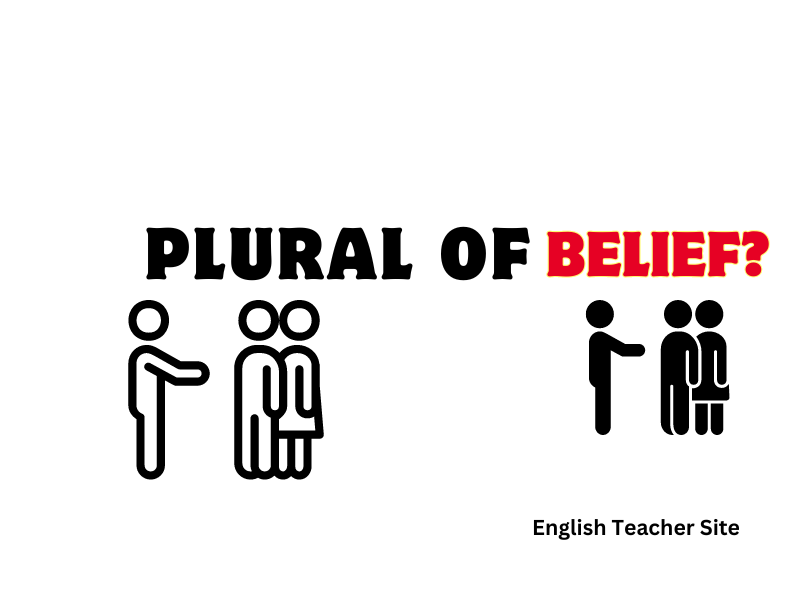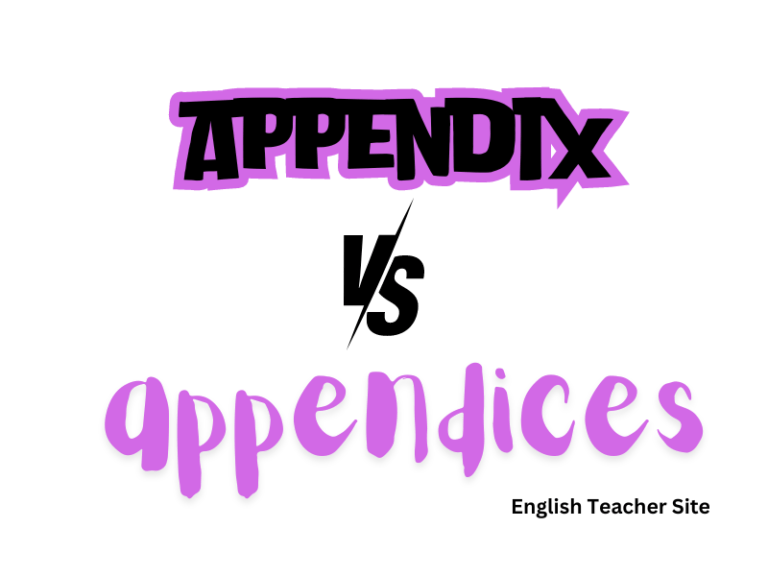What’s the Plural of Belief? Understanding Singular and Plural Nouns

- The plural of “belief” is formed by adding an “-s” to create “beliefs.”
- “Belief” refers to an individual conviction, while “beliefs” encompass multiple convictions.
- Correct usage of “beliefs” is key in discussions involving various tenets or contexts.
The singular noun “belief” denotes a conviction or acceptance that something exists or is true, especially without proof. Expanding the term to its plural form, “beliefs,” refers to multiple such convictions or accepted notions. It is crucial to use the plural form accurately, especially when discussing various individual tenets or when referencing a set of beliefs within a specific context.
What’s the Plural of Belief?
Belief is one such noun that often generates confusion due to the general rule for forming plurals with nouns ending in “f” or “fe”. This rule suggests some nouns change these endings to “ves,” while others simply add “s”.
For the noun belief:
- The singular form is belief.
- The plural is formed by adding an “s”, which yields beliefs.
Example in a sentence:
- My belief is strong.
- All his beliefs are rooted in tradition.
| Singular | Plural |
|---|---|
| belief | beliefs |
The pluralization follows the standard construct, not following nouns like “knife” where the “f” is replaced with “ves”.
In context, ‘beliefs’ are convictions or acceptance that certain ideas or concepts are true. This can relate to personal, religious, or societal concepts.
Usage in Different Contexts:
- Religious beliefs
- Personal beliefs
| Context | Use in a Sentence |
|---|---|
| Religious Context | Her religious beliefs influence her daily life. |
| Personal Convictions | His personal beliefs distinguish him from others. |
- Belief singular noun: one idea or conviction.
- Beliefs plural noun: multiple ideas or convictions.
- Believes verb: to accept something as true.
Singular Form for Belief
The singular form is straightforward and retains the spelling belief.
Characteristics of ‘Belief’:
- Singular noun
- Represents a single concept or idea
- Cannot be divided
The word belief is used in various contexts, from religious faith to personal convictions. Here’s a standard way to use ‘belief’ in a sentence:
- Her belief in the project’s success is unwavering.
In the English language, ‘belief’ remains the same in both subject and object position within a sentence.
| Position in a Sentence | Example |
|---|---|
| Subject | His belief is that every child matters. |
| Object | They questioned her belief. |
The term ‘belief’ can be modified by adjectives to express specific types of convictions.
- A firm belief
- An unshakable belief
Meaning of the Word Belief
The term belief denotes a psychological state where an individual holds a premise or proposition to be true, this concept covers a wide span of mental acceptance from religious faith to simple opinions.
Characteristics of Belief:
- Psychological state of mind
- Acceptance of truth
- Can be based in religion or opinion
- Informs behaviors and outlooks
Belief is not merely a fleeting thought but often influences actions and how one interact with the world. Significantly, the content of one’s belief is pivotal, as it gauges the strength and impact on their conduct.
Elements of Belief:
- Content: What is believed
- Conviction: Strength of the belief
- Consequence: Effect on actions
Within an educational context, beliefs are examined regarding their formation, justification, and practical implications, making it a central theme in disciplines such as philosophy, psychology, and sociology.
Contextual Examples of Belief
Here, we present a variety of examples illustrating how the noun belief and its plural form beliefs are utilized in sentences.
Singular Use of Belief
When belief refers to a single conviction or principle, it remains singular:
- Her belief in the educational system is unwavering.
- A scientist’s belief is often grounded in empirical evidence.
Plural Use of Belief
As multiple convictions or principles are discussed, belief takes the plural form beliefs:
- Their beliefs about health are influenced by cultural practices.
- The community shared common beliefs on sustainability.
Table: Singular vs. Plural Contexts
| Singular Belief | Plural Beliefs |
|---|---|
| His belief is that honesty is the best policy. | Many people’s beliefs about the topic vary widely. |
| One of her core beliefs is kindness. | Religious beliefs often guide personal conduct. |
Table: Incorporating Belief in Different Contexts
| Context | Example with Belief |
|---|---|
| Personal Conviction | His steadfast belief is that every person deserves respect. |
| Scientific Assertion | The hypothesis is based on the belief that this chemical reaction is reversible. |
| Cultural Norms | Shared beliefs shape societal behaviors and traditions. |
| Philosophical Idea | The philosopher’s belief in free will challenges many other theories. |
Contextual Examples of Beliefs
Below are examples of how “beliefs” is properly used in different contexts:
In Religion:
- Many religions have unique beliefs that are central to their teachings.
- Her personal beliefs have shaped her spiritual journey.
In Culture:
- Cultural beliefs can influence social behaviors and community practices.
- The society was known for its ancestral beliefs and traditions.
In Philosophy:
- Philosophical beliefs often challenge our understanding of reality.
- His beliefs about free will align with existentialist philosophy.
In Personal Conviction:
- Individuals hold personal beliefs that mold their worldviews.
- One’s core beliefs may guide daily decisions and actions.
To illustrate the practical usage of “beliefs” more concretely, consider these two tables showing the word used in varied sentences:
Table 1: Beliefs in Academic and Professional Contexts
| Context | Sentence |
|---|---|
| Academic | Professors encouraged students to challenge prevailing scientific beliefs. |
| Professional | The company’s ethical beliefs are reflected in its corporate social responsibility charter. |
Table 2: Beliefs in Social and Personal Contexts
| Context | Sentence |
|---|---|
| Social | National beliefs about hospitality were evident during the cultural festival. |
| Personal | Her beliefs in non-violence led her to support peaceful protests. |
Synonyms for Belief
Here are some of the most common synonyms for belief:
- Faith: Often used in a religious context.
- Conviction: A firmly held belief or opinion.
- Opinion: A view or judgment formed about something.
- View: The ability to see something or to be seen from a particular place.
- Trust: Firm belief in the reliability, truth, ability, or strength of someone or something.
These synonyms may be used interchangeably in general conversation, but may have different connotations depending on their use.
A closer look at some synonyms reveals a subtle range of meanings:
| Synonym | Often Used In | Connotation |
|---|---|---|
| Assurance | General; Business | Confidence in one’s own abilities or in the stability of a situation |
| Credence | Legal; Journalism | Belief as to the truth of something |
| Principle | Philosophical; Moral discourse | A fundamental truth or proposition serving as a foundation for belief or action |
- Credence
- Assurance
- Principle
Origin of the Word Belief
The etymology of “belief” traces back to the Proto-Indo-European root meaning “to care, desire, love,” illustrating the deep-seated emotional connection the term has historically held. In its current form, the noun “belief” typically refers to a state or habit of the mind favoring trust or confidence placed in a person, idea, or thing.
Development Through Languages:
The word “belief” itself originated from the Old English term “geleafa,” which is akin to the West Germanic *ga-laubon, a term signifying the action to value or trust something. Over time, this word evolved in Middle English to “bileave,” retaining a focus on the concepts of confidence and faith.
Modern Application:
In contemporary usage, the plural form of “belief” is “beliefs,” obeying conventional English pluralization rules. This transformation involves altering the ending “f” to “ves” in some English words. However, “belief” is an exception, simply adding an “s”.
| Singular | Plural |
|---|---|
| belief | beliefs |
Usage in Language:
- Trust in religious doctrines.
- Acceptance of a fact or statement as true.
- An opinion or conviction.
Sources
My name is Khamis Maiouf. I am the creator of the English Teacher Site, dedicated to providing valuable resources and insights for students around the world. With a passion for education and a commitment to helping students enhance their skills, I aim to make English teaching more effective and enjoyable for both educators and students.






